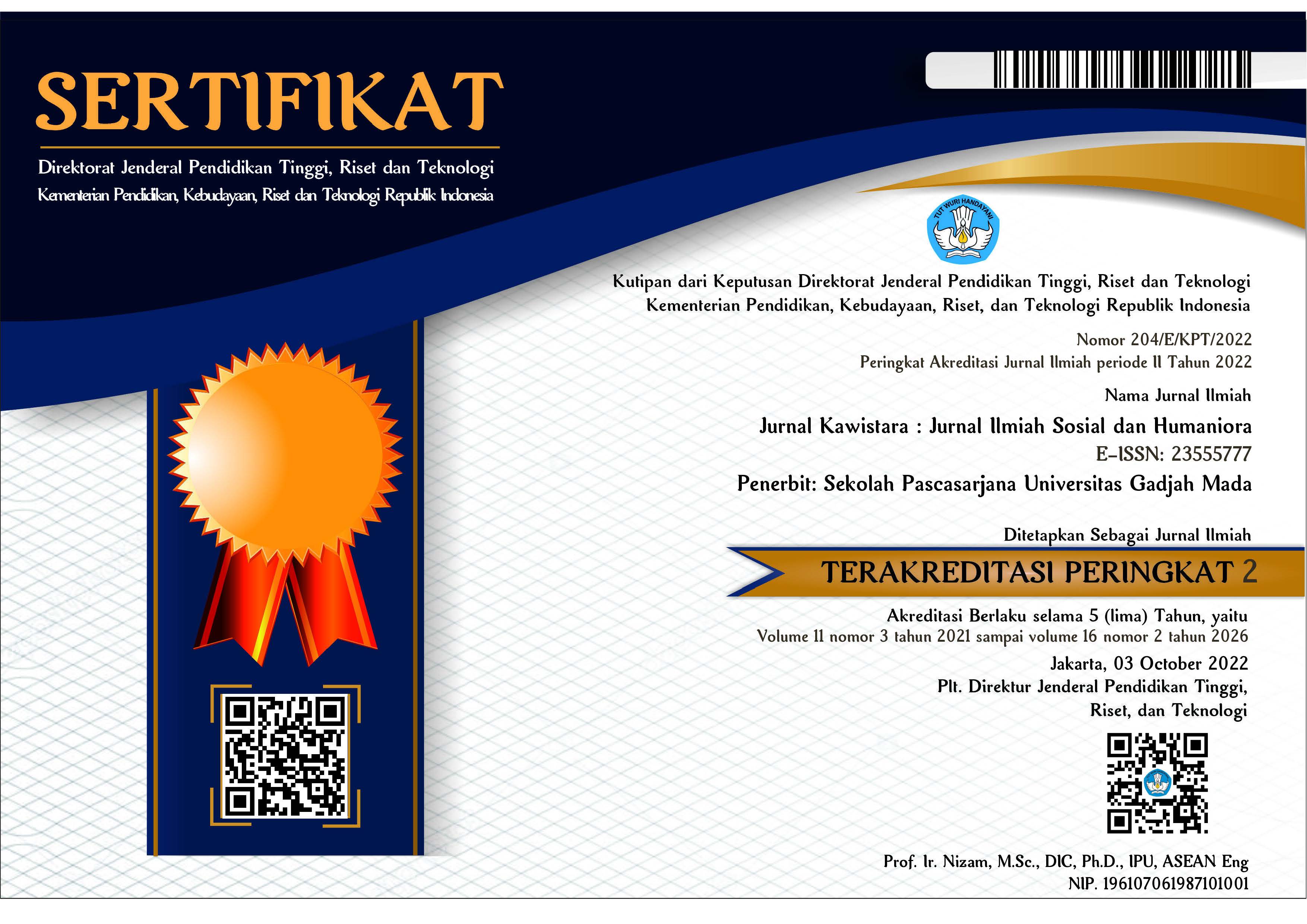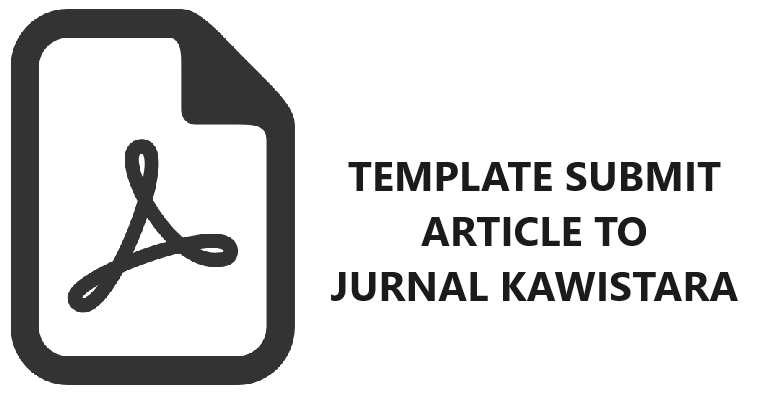Phenomenological Insights on Decent Work and Its Relevance to Local Economic Development
Mizan Ikhlasul Rahman(1*), Khairi Pahlevi(2)
(1) Department of Economics and Development Studies, Faculty of Economics and Business, Universitas Lambung Mangkurat.
(2) Department of Economics and Development Studies, Faculty of Economics and Business, Universitas Lambung Mangkurat.
(*) Corresponding Author
Abstract
The concept of decent work has few explanatory references and comparative descriptions due to limited research. So far, the concept of decent work only refers to standards and concepts issued by the International Labor Organization (ILO). Meanwhile, the Local Economic Development (LED) approach is an alternative strategy that prioritizes local aspects and resources for effective development. The research method chosen in this research is the phenomenological method. The phenomenological method explores human experiences (people’s lived experiences). This is in line with the concept of decent work and local economic development, which is highly influenced by the opinions and narratives described by the community, in this case, the research participants. This research explains the concept of decent work and local economic development based on the conditions of Banjarmasin City. It generated five explanatory clusters in this research. Cluster of general perspectives and specific perspectives related to the concept of decent work. The general perspective is that decent work should meet minimum standards and protect workers’ rights. While a specific perspective emphasizes subjectivity in viewing various decent work concepts. The other three clusters were formed from the exploration of the concept of local economic development, such as the challenge cluster, the opportunity cluster, and the relationship cluster between the concept of local economic development and decent work. These three clusters emphasize that the development concept requires comprehensive planning. Development faces challenges, such as insufficient government support, uncooperative communities, and disinterest among local people, but there are opportunities to boost local economies and improve work decency and conditions.
Keywords
Full Text:
PDFReferences
Abrahams, D. (2003). Local economic development in South Africa: A useful tool for sustainable development. Urban Forum, 14(2–3), 185–200. https://doi.org/10.1007/s12132-003-0010-0
Anker, R., Chernyshev, I., Egger, P., & Mehran, F. (2003). Measuring decent work with statistical indicators. Int’l Lab. Rev., 142, 147.
Amiruddin, L. (2012). Lingkar kuasa kehidupan komunitas pemulung Pandesari Kota Malang. Jurnal Kawistara, 2(2).
Arif, M. C., Simatupang, G. L. L., & Budiawan, B. (2016). Komodifikasi barongsai menjaga tradisi menegosiasi pasar. Jurnal Kawistara, 6(1), 34-46.
Azunu, R., & Mensah, J. K. (2019). Local economic development and poverty reduction in developing societies: The experience of the ILO decent work project in Ghana. Local Economy, 34(5), 405–420. https://doi.org/10.1177/0269094219859234
Badan Pusat Statistik (BPS). (2024, February). Produk Domestik Regional Bruto Menurut Kabupaten/Kota (Milyar Rupiah), 2021-2023. https://kalsel.bps.go.id/indicator/168/65/1/-seri-2010-produk-domestik-regional-bruto-menurut-kabupaten-kota.html
Badan Pusat Statistik (BPS). (2022). Keadaan Angkatan Kerja di Indonesia Agustus 2022. https://www.bps.go.id/id/publication/2022/12/07/a64afccf38fbf6deb81a5dc0/keadaan-angkatan-kerja-di-indonesia-agustus-2022.html
Badan Pusat Statistik (BPS). (2022). Profil Tenaga Kerja Provinsi Kalimantan Selatan Februari 2022. https://kalsel.bps.go.id/publication/2022/10/28/991993ca8981399fa3af0461/profil-tenaga-kerja-provinsi-kalimantan-selatan-februari-2022.html
Birkhölzer, K. (2005). Local economic development and its potential. Berlin: Technologie-Netzwerk.
Blustein, D. L., Lysova, E. I., & Duffy, R. D. (2023). Understanding Decent Work and Meaningful Work. Annual Review of Organizational Psychology and Organizational Behavior, 10(1), 289–314. https://doi.org/10.1146/annurev-orgpsych-031921-024847
Canzanelli, G. (2001). Overview and learned lessons on local economic development, human development, and decent work. Universitas Working Papers, ILO (Organización Internacional del Trabajo).
Coyle, D. (2017). Precarious and Productive Work in the Digital Economy. National Institute Economic Review, 240, R5–R14. https://doi.org/10.1177/002795011724000110
Creswell, J. W. (2009). Research design: Qualitative, quantitative, and mixed methods approaches (3rd ed.). Sage Publications, Inc.
Creswell, J. W., & Poth, C. N. (2016). Qualitative inquiry and research design: Choosing among five approaches. Sage publications.
Dewi, M. H. U. (2013). Pengembangan desa wisata berbasis partisipasi masyarakat lokal di Desa Wisata Jatiluwih Tabanan, Bali. Jurnal Kawistara, 3(2).
Fields, G. S. (2003). Decent work and development policies. Int’l Lab. Rev., 142, 239.
Finlay, L. (2014). Engaging Phenomenological Analysis. Qualitative Research in Psychology, 11(2), 121–141. https://doi.org/10.1080/14780887.2013.807899
Gammarano, R. (2018). Avoiding unemployment is not enough-An analysis of other forms of labour underutilization.
Garcia Lozano, A. J., Decker Sparks, J. L., Durgana, D. P., Farthing, C. M., Fitzpatrick, J., Krough-Poulsen, B., McDonald, G., McDonald, S., Ota, Y., Sarto, N., Cisneros-Montemayor, A. M., Lout, G., Finkbeiner, E., & Kittinger, J. N. (2022). Decent work in fisheries: Current trends and key considerations for future research and policy. Marine Policy, 136, 104922. https://doi.org/10.1016/j.marpol.2021.104922
Ghai, D. (2003). Decent work: Concept and indicators. Int’l Lab. Rev., 142, 113.
Ghai, D., Hepple, B., Godfrey, M., Saith, A., & Kuruvilla They, S. (2006). Decent Work: Objectives and Strategies.
Gibb, S., & Ishaq, M. (2020). Decent work: what matters most and who can make a difference? Employee Relations, 42(4), 845–861. https://doi.org/10.1108/ER-04-2018-0099
Griffin, A., & May, V. (2012). Narrative analysis and interpretative phenomenological analysis. Researching society and culture, 3, 441-458.
Groenewald, T. (2004). A phenomenological research design illustrated. International journal of qualitative methods, 3(1), 42-55.
Haiming, H., & Yan, Y. (2020). An Integrative Literature Review and Future Directions of Decent Work. Global Journal of Management and Business Research, 9–24. https://doi.org/10.34257/GJMBRAVOL20IS8PG9
Haryanto, J. T. (2014). Model pengembangan ekowisata dalam mendukung kemandirian ekonomi daerah studi kasus provinsi DIY. Jurnal Kawistara, 4(3).
Haryanto, J. T. (2013). Implementasi nilai-nilai budaya, sosial, dan lingkungan pengembangan desa wisata di Provinsi Yogyakarta. Jurnal Kawistara, 3(1).
Hasle, P., & Vang, J. (2021). Designing Better Interventions: Insights from Research on Decent Work. Journal of Supply Chain Management, 57(2), 58–70. https://doi.org/10.1111/jscm.12261
Hidayat, B., Fatoni, A., Saksono, H., Asriani, A., & Andari, T. (2022). Integrated River Transport Development to Support Smart City. Jurnal Bina Praja, 14(1), 1–15. https://doi.org/10.21787/jbp.14.2022.1-15
Hughes, D., Warhurst, C., & Duarte, M. E. (2021). Decent work, inclusion and sustainability: a new era lies ahead. British Journal of Guidance & Counselling, 49(2), 145–152. https://doi.org/10.1080/03069885.2021.1898540
International Labour Organization (ILO). (2020). Decent Work Country Programme (DWCP) for Indonesia 2020-2025.
Kreinin, H., & Aigner, E. (2022). From “Decent work and economic growth” to “Sustainable work and economic degrowth”: a new framework for SDG 8. Empirica, 49(2), 281–311. https://doi.org/10.1007/s10663-021-09526-5
Larsen, H. G., & Adu, P. (2021). The theoretical framework in phenomenological research: Development and application. Routledge.
Leal Filho, W., Azul, A. M., Brandli, L., Lange Salvia, A., & Wall, T. (Eds.). (2021). Decent work and economic growth. Cham: Springer International Publishing.
Leigh, N. G., & Blakely, E. J. (2016). Planning local economic development: Theory and practice. SAGE publications.
Mačernytė Panomariovienė, I. (2012). Decent work and its purpose. Intelektinė ekonomika: mokslo darbų žurnalas= Intellectual economics. Vilnius: Mykolo Romerio universitetas, 2012, vol. 6, no. 3 (15).
Mahadevia, D. (2012). Decent work in Ahmedabad: An integrated approach. ILO.
Malizia, E., Feser, E. J., Renski, H., & Drucker, J. (2020). Understanding local economic development. Routledge.
Massoudi, K., Abessolo, M., Atitsogbe, K. A., Banet, E., Bollmann, G., Dauwalder, J.-P., Handschin, P., Maggiori, C., Masdonati, J., Rochat, S., & Rossier, J. (2018). A Value-Centered Approach to Decent Work. In Interventions in Career Design and Education (pp. 93–110). Springer International Publishing. https://doi.org/10.1007/978-3-319-91968-3_6
McLean, M. L., Voytek, K. P., Balfe, K. P., Hammer, T. R., & McDonald, J. F. (2018). Understanding Your Economy: Using Analysis to Guide Local Strategic Planning. Routledge.
Mensah, J. K., Bawole, J. N., Ahenkan, A., & Azunu, R. (2019). The Policy and Practice of Local Economic Development in Ghana. Urban Forum, 30(2), 205–222. https://doi.org/10.1007/s12132-018-9344-5
Mihradi, R. M., & Siregar, F. M. (2017). Dinamika Problematika Sosial Perlindungan Buruh Migran Indonesia Pasca Reformasi Dan Relevansinya Dengan Tantangan Wirausaha Di Era Masyarakat Ekonomi Asean (Mea). Jurnal Kawistara, 7(2), 179-186. https://doi.org/10.22146/kawistara.23657
Moustakas, C. (1994). Phenomenological research methods. Sage publications.
Mulyana, W. (2012). Decent work in Jakarta: An integrated approach. ILO.
Nel, E., & Rogerson, C. M. (2016). The contested trajectory of applied local economic development in South Africa. Local Economy, 31(1–2), 109–123. https://doi.org/10.1177/0269094215623729
Nizami, N., & Prasad, N. (2017). Decent work. Springer Singapore.
Novianto, A. (2017). Memperbesar Tentara Cadangan Pekerja: “Bonus Demografi” dan Ekonomi Politik Negara Neoliberal Di Indonesia. Jurnal Kawistara, 7(2), 187-200. https://doi.org/10.22146/kawistara.18834
Pereira, S. A., dos Santos, N. R., & Pais, L. (2019). Decent work’s contribution to the economy for the common good. International Journal of Organizational Analysis, 28(3), 579–593. https://doi.org/10.1108/IJOA-07-2019-1840
Piasna, A., Sehnbruch, K., & Burchell, B. (2020). Decent Work: Conceptualization and Policy Impact (pp. 1–11). https://doi.org/10.1007/978-3-319-71058-7_107-1
Pike, A., Rodríguez-Pose, A., & Tomaney, J. (2007). What kind of local and regional development and for whom? Regional Studies, 41(9), 1253–1269. https://doi.org/10.1080/00343400701543355
Pike, A., Rodríguez-Pose, A., & Tomaney, J. (2016). Local and regional development. Routledge.
Priest, H. (2002). An approach to the phenomenological analysis of data. Nurse researcher, 10(2), 50-63.
Raharjana, D. T. (2012). Membangun pariwisata bersama rakyat: Kajian partisipasi lokal dalam membangun Desa wisata di dieng plateau. Jurnal Kawistara, 2(3).
Rantanen, J., Muchiri, F., & Lehtinen, S. (2020). Decent Work, ILO’s Response to the Globalization of Working Life: Basic Concepts and Global Implementation with Special Reference to Occupational Health. International Journal of Environmental Research and Public Health, 17(10), 3351. https://doi.org/10.3390/ijerph17103351
Robson, C., & McCartan, K. (2016). Real world research: A resource for users of social research methods in applied settings.
Rodríguez-Pose, A., & Palavicini-Corona, E. I. (2013). Does local economic development really work? Assessing LED across Mexican municipalities.
Rogerson, C. M. (2014). Reframing place-based economic development in South Africa: the example of local economic development. Bulletin of Geography. Socio-Economic Series, 24(24), 203–218. https://doi.org/10.2478/bog-2014-0023
Rogerson, C. M., & Rogerson, J. M. (2010). Local economic development in Africa: Global context and research directions. Development Southern Africa, 27(4), 465–480. https://doi.org/10.1080/0376835X.2010.508577
Sachs, I. (2004). Inclusive development and decent work for all. Int’l Lab. Rev., 143, 161.
Saputri, A., Listyaningsih, U., Pangaribowo, E. H. (2021). Social capital and household poverty in Indonesia. Jurnal Kawistara, 11(3), 252-264. https://doi.org/10.22146/kawistara.v11i3.66012
Sehnbruch, K., Burchell, B., Agloni, N., & Piasna, A. (2015). Human development and decent Work: Why some concepts succeed and others fail to make an impact. Development and Change, 46(2), 197–224. https://doi.org/10.1111/dech.12149
Starks, H., & Brown Trinidad, S. (2007). Choose Your Method: A Comparison of Phenomenology, Discourse Analysis, and Grounded Theory. Qualitative Health Research, 17(10), 1372–1380. https://doi.org/10.1177/1049732307307031
Stojkovic-Zlatanovic, S., & Jovanovic, P. (2023). Workforce aging and decent work in the era of the digital economy - towards a holistic public policy approach. Stanovnistvo, 61(1), 53–68. https://doi.org/10.2298/STNV230220001S
Suharto, B., Damanik, J., Baiquni, M., & Fandeli, C. (2016). Kerja Layak Dorong Perkembangan Industri Pariwisata di Kedongan dan Jimbaran Bali. Jurnal Kawistara, 6(1), 21-33.
Suharto, B., Damanik, J., Baiquni, M., & Fandeli, C. (2014). Mobilitas Kelas Baru Di Dunia Industri Pariwisata. Jurnal Kawistara, 4(3).
Thomas, E., & Amadei, B. (2010). Accounting for human behavior, local conditions and organizational constraints in humanitarian development models. Environment, Development and Sustainability, 12(3), 313–327. https://doi.org/10.1007/s10668-009-9196-1
Tuffour, I. (2017). A Critical Overview of Interpretative Phenomenological Analysis: A Contemporary Qualitative Research Approach. Journal of Healthcare Communications, 02(04). https://doi.org/10.4172/2472-1654.100093
Vázquez-Barquero, A., & Rodríguez-Cohard, J. C. (2016). Endogenous development and institutions: Challenges for local development initiatives. Environment and Planning C: Government and Policy, 34(6), 1135–1153. https://doi.org/10.1177/0263774X15624924
Widyastuty, A. A. S. A., & Dwiarta, I. M. B. (2021). Perencanaan dan Pengembangan Desa Wisata Kaba–Kaba Berbasis Kearifan Lokal. Jurnal Kawistara, 11(1), 87-101.
Yin, R. K. (2014). Case study research: Design and methods (applied social research methods) (p. 312). Thousand Oaks, CA: Sage publications.
Zhang, X., Warner, M. E., & Homsy, G. C. (2017). Environment, Equity, and Economic Development Goals: Understanding Differences in Local Economic Development Strategies. Economic Development Quarterly, 31(3), 196–209. https://doi.org/10.1177/0891242417712003
Article Metrics
Refbacks
- There are currently no refbacks.
Copyright (c) 2024 Mizan Ikhlasul Rahman, Khairi Pahlevi

This work is licensed under a Creative Commons Attribution-ShareAlike 4.0 International License.
Jurnal Kawistara is published by the Graduate School, Universitas Gadjah Mada.












